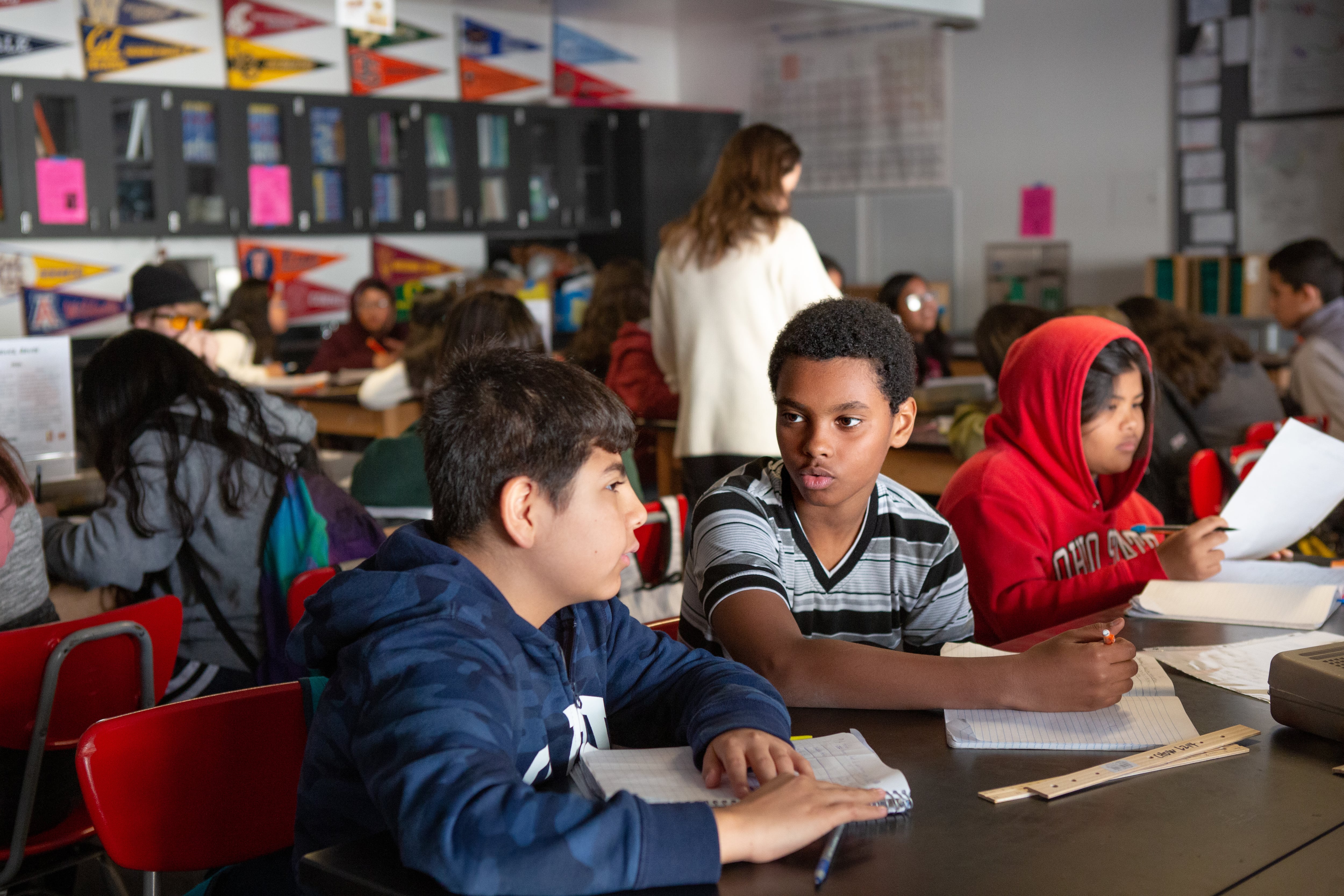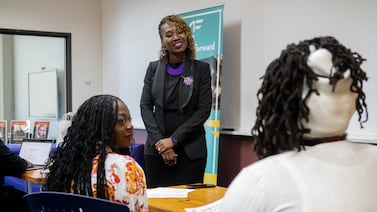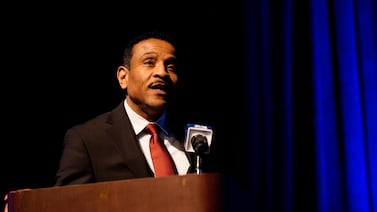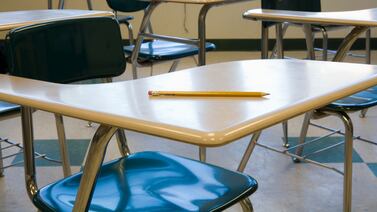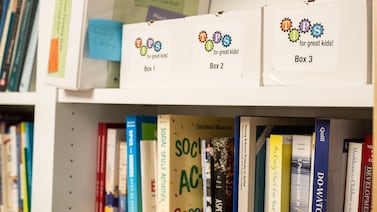Sign up for Chalkbeat New York’s free daily newsletter to keep up with NYC’s public schools.
The number of middle schools across New York City using academic screens to sort fifth grade applicants continues to remain well below pre-pandemic levels — but in one Brooklyn school district, they’re growing dramatically.
This year, 78 middle school programs across 69 schools will screen applicants based on their academic records, according to Education Department data.
That was up from last year, when 59 of the city’s more than 470 middle schools selected at least some of their incoming sixth graders using their fourth grade academic performance. But it was still down when compared to pre-pandemic admissions cycles. For the 2020-21 academic year, 196 middle schools across the city screened at least some of their applicants.
The latest figures come as middle school applications opened on Wednesday.
Families and parent leaders have fiercely debated whether and how academic screens should play a role in middle school admissions. While some have called for more screened options and the inclusion of other measures of student performance, like state test scores, others warn the practice harms integration efforts in a school system that is already among the most segregated in the nation. Integration advocates add it is unfair to sort students as young as nine based on their grades.
The tension follows several years of pandemic-spurred changes to admissions, with academic screens initially paused, then brought back in some districts at the discretion of each of the city’s 32 local school district superintendents.
This year, District 20 in Brooklyn, which covers Bay Ridge, Dyker Heights, Borough Park, and part of Sunset Park, will more than quadruple the number of middle schools with academically screened programs. Alone, the district will be home to more than a quarter of the city’s academically screened middle school programs.
It will offer 23 academically screened programs across 14 schools — up from the three middle schools that offered screened programs last year.
Academic screens fuel debates across the city
Deciding to reinstate academic screens, or drop them, can be controversial. Debates across the city have sparked controversy this year, with parents split on many facets of the process.
District 20 is one of several across the city where the group Parent Leaders for Accelerated Curriculum and Education, or PLACE, has established a stronghold on local parent-led Community Education Councils — with endorsed candidates winning all elected seats in the district. The group advocates for test-based and other selective school admissions.
Stephen Stowe, president of the District 20 CEC, praised the local expansion of screened programs.
“There is high demand for these programs,” he said, adding that many parents complained about long waitlists at the three district middle schools that used academic screens last year.
The “Superintendent’s Program,” a screened program adopted by about a dozen schools in the district, will align with the state’s new learning standards and offer accelerated learning in core subjects, Stowe added.
Others expressed concerns about the surge in screened programs. Nyah Berg, executive director of New York Appleseed, an organization that advocates for integrated schools, called District 20’s decision “an egregious policy to implement.”
“It’s literally a step back in time,” she said. “Trying to return to a status quo that was exclusionary and discriminatory for some of our most marginalized student groups in the city.”
“I’m enraged for the students and families in District 20 that have had opportunities potentially taken away from them, and access taken away from them, when they had just gained it for a couple of years,” Berg added.
Other districts have made smaller changes.
In District 2 — which covers broad swaths of Manhattan including TriBeCa, Greenwich Village, Gramercy, and the Upper East Side — screened programs will return to four zoned middle schools. It’s a reversal of a move last year to drop academic screens in the district, and the first time middle schools in District 2 will screen applicants based on their fourth grade academic performance since the onset of the pandemic. (Prior to the pandemic, about 18 out of 23 middle schools in the district screened at least some of their applicants.)
Schools using academic screens in admissions rank applicants based on their fourth grade GPAs in core subjects.
Families have until Dec. 8 to submit their middle school applications. Offers are expected to be released in April.
Here’s how many academically screened programs each district’s middle schools will offer. The data, provided by the city’s Education Department, does not include several arts programs across the city that rely on auditions, nor other programs that use “talent tests” to screen applicants, like computer and math, creative writing and journalism, and science programs at Mark Twain.
District 1: 1
District 2: 4
District 3: 1
District 4: 2
District 5: 3
District 6: 1
District 7: 1
District 8: 0
District 9: 1
District 10: 4
District 11: 0
District 12: 0
District 13: 0
District 14: 0
District 15: 0
District 16: 0
District 17: 4
District 18: 1
District 19: 0
District 20: 23
District 21: 0
District 22: 1
District 23: 1
District 24: 3
District 25: 3
District 26: 5
District 27: 2
District 28: 1
District 29: 5
District 30: 5
District 31: 4
District 32: 2
Julian Shen-Berro is a reporter covering New York City. Contact him at jshen-berro@chalkbeat.org.


